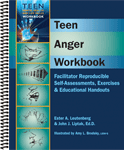What causes most depression: genetics or experiences?
A hint to the answer comes from the comparisons of depression and schizophrenia rates worldwide. Schizophrenia is found in approximately 1% of the population no matter the culture. Depression varies dramatically culture to culture suggesting it could be contagious.
Consider the following and see if you think depression is spreading:
- The World Health Organization says depression is the fourth leading cause of human disability and projects by 2020 it’ll take over second place.
- The average onset of depression is the mid-20s. It used to be the mid-30s.
- According to clinical psychologist Michael Yapko, long-term studies show depression intensifying one generation to the next, “Today’s parents are the largest depressed group raising the fastest-growing group of depression sufferers.”
- We’re four times more depressed than our parents; ten times more so than our grandparents! And this is not due to greater awareness of the illness.
Since depressed people experience far more difficulty socially than do those not depressed, could they be spreading the illness? They have:
- More family and marital arguments;
- Less relationship satisfaction;
- Greater unhappiness;
Even though you can be genetically vulnerable to depression, the greater cause is learning, mostly from our families, how to manage what goes on inside our heads, including our:
- Explanatory style (the meaning we attach to life experiences);
- Cognitive style (thinking);
- Coping style (how we manage stress);
- Problem-solving style;
- Relational style;
Families model their thinking, feeling, and relating to others, passing on these patterns to other family members.
Yapko also reports a near-perfect correlation between parents’ explanatory style and their child’s. When your child asks you why something happened, your explanation represents your style of thinking including your belief of what caused it. “Why can’t I take tennis lessons, Mom?” “It’s a waste of money since you’ll never be coordinated.” Mom attributes the cause to the child’s clumsiness. And her permanently negative attribution communicates nothing will ever change.
Yapko says these routine interactions happen multiple times daily, imperceptibly shaping the child’s beliefs about himself and his world. They influence how he filters risk-taking, his own potential, whom he blames when things go wrong – and – his vulnerability to depression.
Additionally, the child who learns to make global assumptions that life events are beyond his control experiences greater helplessness and hopelessness, ingredients for depression. He’s more likely to perceive himself helpless about his happiness, competence and relationships.
Studies show these interpretation patterns are established early on. In one study, 8 year-old children were asked how they’d respond if shopping with their mother and suddenly finding themselves separated from her. The anxious children produced scary scenarios of never finding their parents and being adopted by strangers. The nonanxious kids said they’d ask the store manager to make a P-A announcement. Free of their peers’ anxiety, they’d think their way through to solving the problem.
Which patterns of perceiving are you teaching your kids?
Jacquelyn Ferguson, M. S., is an international speaker and a Stress and Wellness Coach. Order her book, Let Your Body Win: Stress Management Plain & Simple.


